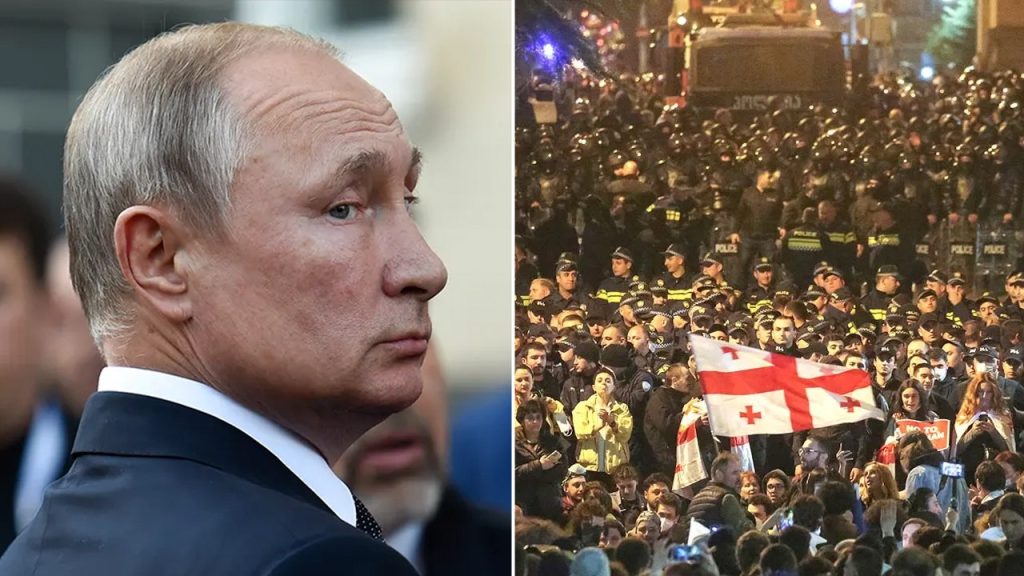The political landscape in Georgia is fraught with tension and accusations of Russian interference, casting a long shadow over the nation’s aspirations to join the European Union. Former Prime Minister Nika Gilauri, in an exclusive interview with Fox News Digital, characterized the recent parliamentary elections as rigged, resulting in an illegitimate parliament and a significant setback for Georgia’s democratic progress. He pointed fingers at Russia, alleging that the Kremlin orchestrated the election outcome, echoing similar patterns of interference observed in neighboring countries like Romania and Moldova. This perceived Russian influence has fueled widespread protests and raised concerns about the future direction of Georgian politics.
Gilauri’s assertions align with the sentiments of many Georgians who have taken to the streets in protest, braving freezing temperatures to voice their discontent with the election results. The pro-Russia Georgian Dream party’s victory has been met with widespread skepticism and accusations of fraud. The protests, which began in late November, have been met with a heavy-handed response from authorities, with hundreds of arrests and reports of police brutality. Amnesty International has documented numerous cases of severe beatings and ill-treatment of protesters, further escalating tensions and underscoring the fragility of democratic freedoms in the country.
Adding to the complexity of the situation is the impending end of President Salome Zourabichvili’s term. Gilauri emphasized the importance of Zourabichvili remaining in office, describing her as the “only legitimate institution that Georgia has right now.” Zourabichvili, a pro-Europe figure, has openly challenged the legitimacy of the elections and the parliament’s authority to appoint her successor. The parliament, dominated by the Georgian Dream party, has nominated Mikheil Kavelashvili, a figure viewed by the opposition as aligned with Russia’s interests. This power struggle further destabilizes the political landscape and raises concerns about a potential constitutional crisis.
The clash between Zourabichvili and the Georgian Dream party has intensified, with Prime Minister Irakli Kobakhidze even suggesting the possibility of imprisoning the president if she refuses to step down. This blatant disregard for democratic norms has further alienated those protesting the election results and fueled fears of a slide towards authoritarianism. Zourabichvili, meanwhile, has emerged as a de facto leader of the protest movement, calling for new elections and a negotiated solution to the political impasse. Her continued defiance in the face of pressure from the ruling party has galvanized the opposition and highlighted the deep divisions within Georgian society.
The Georgian Dream party, despite accusations of being pro-Russia, maintains its commitment to Western integration. However, its actions, including the passage of a controversial “foreign agent” law, have strained relations with the West and raised doubts about the sincerity of its pro-Western rhetoric. The law, which requires organizations receiving significant foreign funding to register as foreign agents, has been criticized as a tool to stifle dissent and restrict civil society. The United States has responded with sanctions and a pause in aid, signaling its disapproval of the Georgian government’s actions.
The political turmoil in Georgia highlights the ongoing struggle between pro-Western and pro-Russian factions within the country. The disputed election results, the protests, and the power struggle surrounding the presidency have created a volatile and uncertain environment. The future of Georgia’s democratic trajectory and its aspirations for European integration hang in the balance, with the outcome likely depending on the actions of key political players, the resilience of civil society, and the international community’s response to the unfolding crisis. The situation remains fluid, and the coming days and weeks will be crucial in determining the direction Georgia takes.

